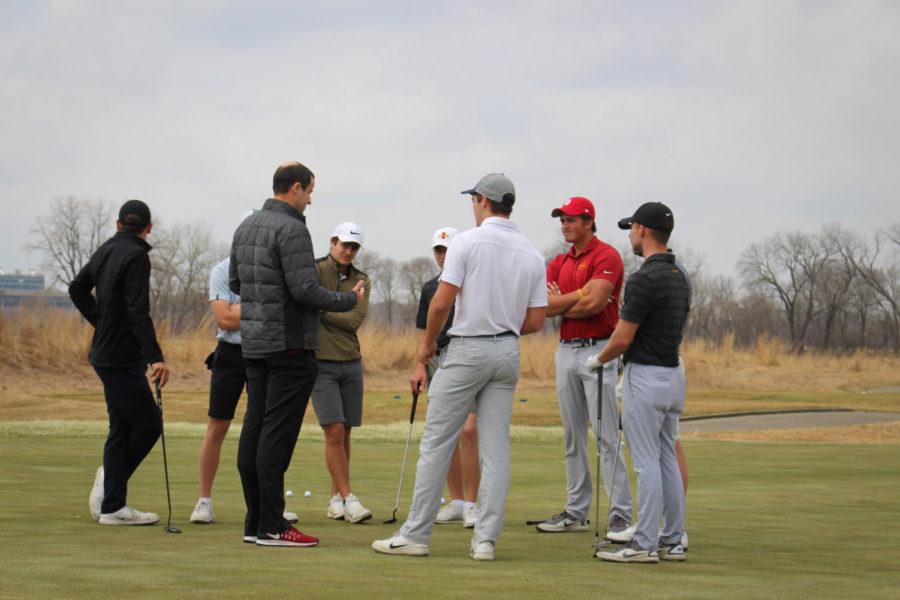Why don’t Americans get caught up in World Cup
July 9, 1998
Every four years nations with comical names (such as Camaroon, Paraguay, France, etc.) from around the world send their national soccer teams to the World Cup to determine which nation is best, and possibly start small skirmishes among the citizenry that eventually escalate to all-out war.
Now the vast majority of earthlings are fascinated by this event as soccer, or football, is one of the most popular sports in the world. Fans will watch and listen intently, hanging on every word the announcers say and rejoicing wildly when they hear their announcer scream “GOAL!!”
If their team wins, they will flood into the streets cheering and causing mayhem and mass hysteria, perhaps inadvertently killing a few hundred people in the process.
While this may be true in the rest of the world, in America, soccer ranks only slightly above curling (not weightlifting — the winter sport with the stone and brooms — look it up) in popularity as a spectator sport.
We hardly even acknowledge its existence as a sport, and many will argue for hours that it is not a real sport. And so, it is with waning enthusiasm that most Americans begrudgingly allow the World Cup to eat up precious seconds during their time.
There are many reasons for America’s general distaste for soccer. One of them could easily be because we suck. America’s World Cup hopefuls did not even advance to the second round of play. The U.S. soccer team wisely chose to skip the more time consuming later rounds of the World Cup and got its three losses right in a row (no doubt so they could spend more time with their families).
The statistic that really shows how sad our soccer team is is the fact that in our three losses, we scored only one goal. That is .33 goals per game. I know that soccer is not a high scoring sport like baseball, but isn’t it common for a team to score at least once a game?
Now, I can accept the first 68 years of losses by the Americans. Those were development years. But with each passing year, we expect our team to do better.
We look for a win, an advance to the next round, anything, any sign of life, but each year we are disappointed. But not overly disappointed.
It is likely the same disappointment I feel every time I hear a Spice Girls song on the radio. I think “Oh, that’s too bad” and then I move on with my life, after I change the station.
It’s possible that Americans could support soccer if we would win more often or, more appropriately, ever. And it’s not that we can’t root for the underdog, which as much as we hate it, is us.
It’s just really unfortunate that the World Cup falls on the same year as the Winter Olympics. By the time they are over, most Americans are tired of watching people from small countries like Lichtenstein kick the crap out of us in sports we don’t even vaguely understand (i.e. paragraph 4: curling).
To watch soccer and become emotionally involved in yet another resounding defeat in the same year is just too much to take. And so we remain detached and uninvolved.
Maybe Americans could become more involved in soccer if it didn’t seem that the rules were made up by martians. For example, stoppage time.
Here, because the clock never stops, time is added to the clock at the end of regulation to make up for substitutions, time taken to reset after goals, etc., to make sure that a full 90 minutes are played.
So then just when you think the game is over and your team has won, they tack another 3 minutes on the clock. It would seem easier to just stop the clock. But bearing in mind that the game was invented in England and “British engineering” being what it is, I can see how once you start something, you want to keep it running.
I was watching SportsCenter recently and I saw that the score of the England vs. Argentina match was 2-2. Then the announcer said Argentina won the match 4-3 on penalty kicks.
If Argentina won, then how come the score was tied? I know there is some kind of explanation for this and I am sure it is complicated, but to many people, soccer is just confusing. Then you have red cards, yellow cards, green cards, Christmas cards and who knows what else.
Nobody knows what they mean or what they do. Is the player kicked out of the game, is he suspended for a game, is he sentenced to be executed? Also, why? No one knows.
But Americans can get over strange rules or losing streaks that began during the Truman administration.
The main problem is that soccer is not an original “American” sport, it is an English sport. Baseball, basketball and football are all sports that either we invented or we developed from other games. These are our sports and they are the ones we’ll always support.
Before you serious soccer fans who are fanatical about soccer like they are in Europe send me death threats or mail bombs, let me say that I like the sport of soccer.
I played organized soccer in my younger days, not “soccer” during recess at school where you tried to hit people in the head with the ball instead of scoring goals, but real soccer.
It was a lot of fun although the game clearly demands skill and endurance. However, as much fun as it is to play, America can not seem to build up the enthusiasm for the game that the rest of the world does.
Matt Voss is a senior in journalism and mass communication from Cedar Falls.






